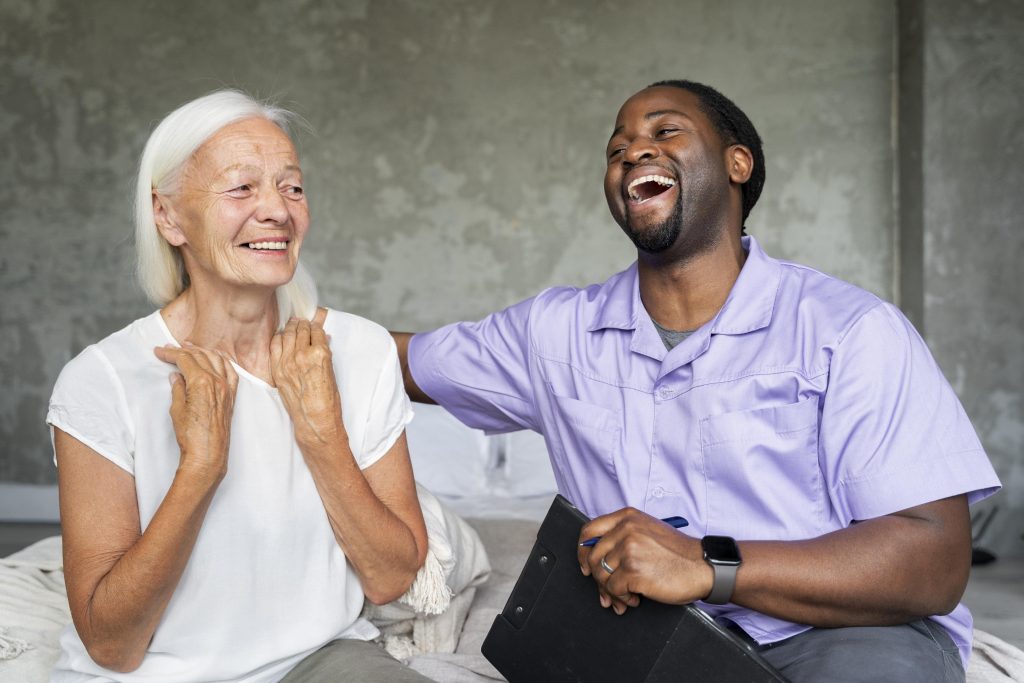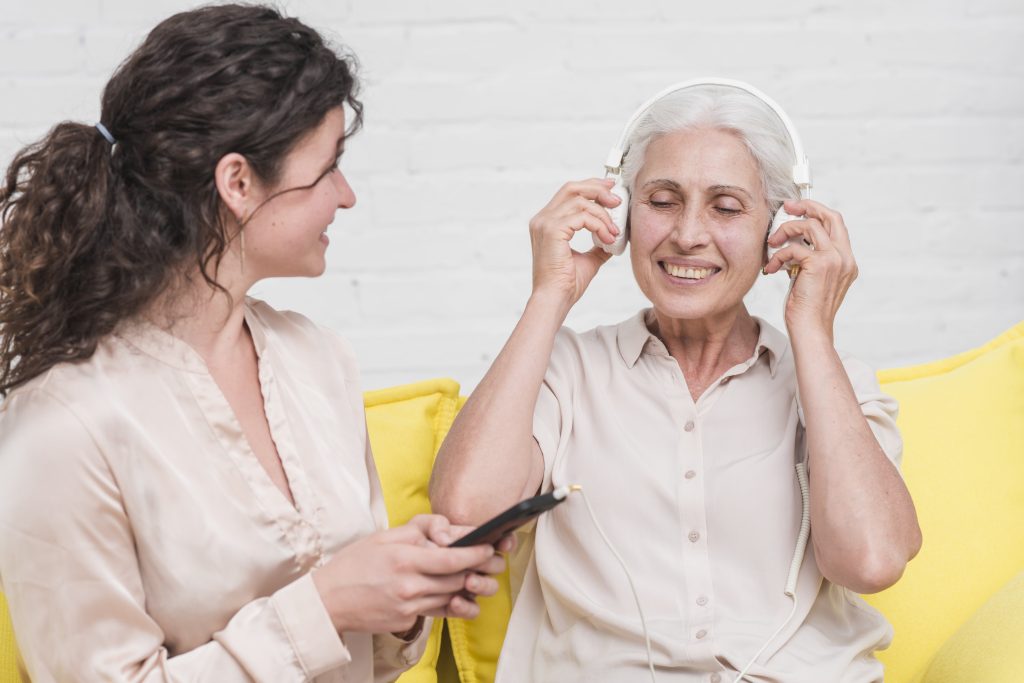The Importance of Social Interaction for Seniors Receiving Home Care Services
As people age, they may experience physical and cognitive changes that can make it more difficult to participate in social activities. This can be particularly challenging for seniors who receive home health care services, as they may spend much of their time at home and have limited opportunities for social interaction. However, social interaction is crucial for seniors’ overall health and well-being, and there are many strategies that caregivers and family members can use to promote socialization for seniors receiving home health care.

Importance of Social Interaction for Seniors Receiving Home Health Care
Social interaction is important for people of all ages, but it is especially critical for seniors who may be at risk of isolation and loneliness. According to the National Institute on Aging, social isolation and loneliness can have serious negative effects on seniors’ physical and mental health, including an increased risk of depression, cognitive decline, and cardiovascular disease.
Seniors who receive home health care services may be particularly vulnerable to social isolation, as they may not have regular opportunities to interact with others outside of their caregivers. However, social interaction can help seniors to stay engaged and active, maintain cognitive function, and reduce feelings of loneliness and depression.
Tips and Strategies for Promoting Social Interaction for Seniors Receiving Home Health Care
Encourage participation in local community events and activities: Many communities offer events and activities specifically for seniors, such as senior centers, community centers, and local clubs. Encourage seniors receiving home health care to participate in these events and activities, or arrange for transportation to and from the events.
Use technology to stay connected: Technology can be a valuable tool for staying connected with family members and friends, even if they are not physically present. Consider setting up video calls or virtual visits to help seniors stay connected with loved ones.
Consider hiring a companion or caregiver: A companion or caregiver can provide seniors with regular social interaction and companionship, as well as help with daily tasks and activities.
Arrange regular outings and social activities: Seniors receiving home health care may benefit from regular outings and social activities, such as visits to the park, museum, or local restaurant. These outings can help seniors to stay engaged and active while also providing opportunities for social interaction.
Encourage participation in hobbies and interests: Hobbies and interests can be a great way for seniors to stay engaged and connected with others who share similar interests. Encourage seniors to pursue their interests, or help them to find new hobbies or activities that they might enjoy.

The study, published Feb. 20, 2019, in The Journals of Gerontology, Series B: Psychological Sciences and Social Sciences, found that older adults who interacted with people beyond their usual social circle of family and close friends were more likely to have higher levels of physical activity, greater positive moods, and fewer negative feelings.
Extract from:
Conclusion
Social interaction is critical for seniors receiving home health care services, as it can help to reduce feelings of isolation and loneliness, promote cognitive function, and improve overall health and well-being. Caregivers and family members can use a variety of strategies to promote socialization for seniors, including encouraging participation in community events and activities, using technology to stay connected, arranging for regular outings and social activities, and encouraging participation in hobbies and interests. By prioritizing social interaction, seniors can continue to lead fulfilling and meaningful lives even as they receive home health care services.




